The Pantheon of Gods
There are a multitude of gods who have followers among the people in the Estian Sea. The ones with the biggest following are Odin, Thor, and Freya, but several others have sizable cults. The gods live on the plane of Asgard, far above the mortal world.
Some gods have several aspects, where worshippers might find entirely different traits to worship in the same deity. For example, some druids pray to Skadi as the Wildwatcher, the guardian of the wilderness. At the same time, a dragon cult can give sacrifice to Skadi as the Dragonmother, the originator of the chromatic dragons. Neither view is wrong, but neither party needs to accept the teachings of the other because they belong to the same deity.
Most people in the islands are henotheistic, preferring worship of one god above the rest while still respecting the power and worship of other gods. This still leaves room to direct a prayer to another god if their domain is more relevant. For example, someone who considers Heimdall their primary deity might still make a sacrifice to Thor or Aegir before setting out on a journey by ship, to ensure a safe passage.
The relationships between the gods can be difficult to understand for mere mortals. As beings of divine power that have lived for eons, they have mostly learned to live in mutual understanding, despite their sometimes clashing domains and ideals.
| Deity | Alignment | Primary Domain | Common symbol | Family | |
|---|---|---|---|---|---|
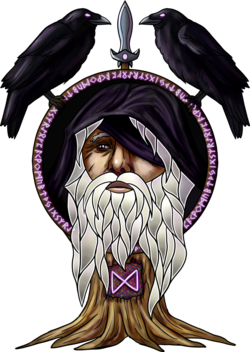 | Odin | N | Arcana | Raven | Both |
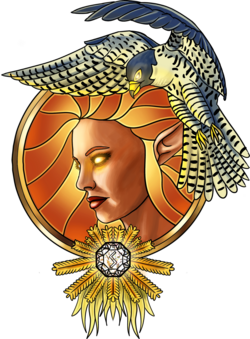 | Freya | NG | Life | Sun | Vanir |
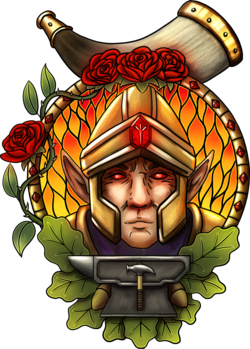 | Heimdall | LG | Forge | Anvil | Vanir |
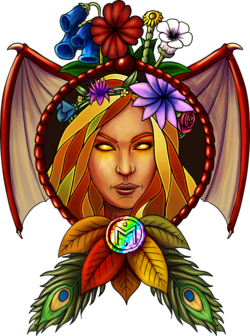 | Skadi | NE | Nature | Dragon | Vanir |
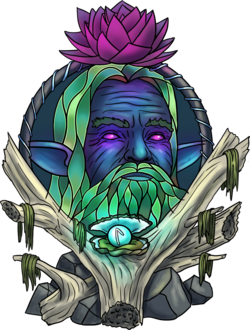 | Aegir | CN | Tempest | Waves | Vanir |
| Loki | CE | Trickery | Spider | Vanir | |
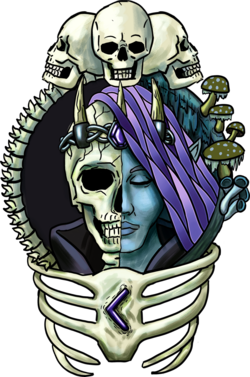 | Hel | LE | Death | Skull | Vanir |
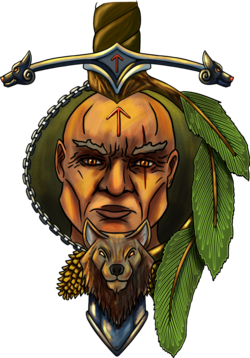 | Tyr | LE | War | Spear | Aesir |
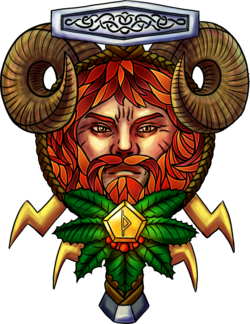 | Thor | CN | Tempest | Hammer | Aesir |
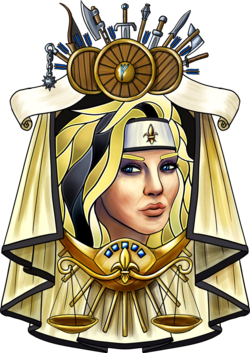 | Sif | LN | Order | Scales | Aesir |
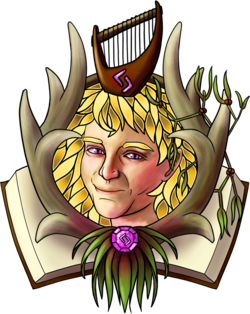 | Balder | CG | Poetry | Lyre | Aesir |
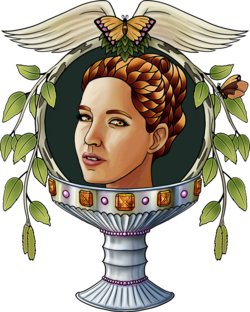 | Idun | CG | Luck | Apple | Aesir |
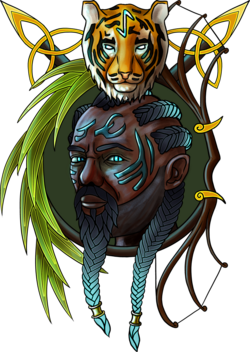 | Uller | LN | Hunting | Crossed Arrows | Aesir |
All alignments, classes and background suggestions presented as connected to a gods are for inspiration only. Some of the greatest characters and moments can come from breaking these stereotypes.
The Aesir and the Vanir
The gods are divided into families, the Aesir and the Vanir. According to legend, the Aesir fought a war against the Vanir, who were eventually forced to submit and accept the Aesir as their equals. Odin is considered to be both Aesir and Vanir, symbolizing their union into a single pantheon.
The divide among the gods is still relevant in some tales and stories, but downplayed or not present in others. Some cultures only worship either family of gods.
The elvish word for god is vana (vana), and they consider themselves the vanadine, 'Children of the Gods'. The elvish word aesi (aesi), on the other hand, means 'dwarf'. This is reflected in that elves are more likely to worship the Vanir, and dwarves are more likely to worship the Aesir.
The Vanir correspond directly to the old Teccan gods: Freya (Helianna), Heimdall (Phatos), Skadi (Naia), Loki (Caldir), Hel (Dessia), Aegir (Marus). While Odin is equivalent to Archea, he is considered to be among both the Vanir or Aesir, as he is the King of the Gods.
Aesir gods: Thor, Tyr, Balder, Idun, Sif, Uller
Ragnarok
Odin has foreseen the end of the world, but does not know when it will occur. The gods work hard to prepare for this battle at the end of time. It will be heralded by a great winter, followed by a summer with no sunshine. When the battle breaks out, the borders between Midgard and the outer planes will open wide and the forces of darkness will invade. The fire giant Surtr (from Muspelheim, the Plane of Fire) will lead a great host of evil, and the great wolf Fenrir (from the Shadowfell) and Jormungandr the World Serpent (from the Plane of Water) will take his side and fight the gods.
Odin has seen that many of the gods will die in this battle, including himself. In his visions, Thor slays the World Serpent before succumbing to its poison, and Tyr duels with Fenrir, finally besting the Wolf that severed his hand when the world was young.
In preparation, Odin is gathering his army by having his Valkyries take the worthiest warriors who fall in battle to Valhalla, where they feast and train in preparation for the Battle at the End of Time. Odin has also given Freya the task of restoring civilization to Midgard after the battle is over. Freya gathers the kind and caring in her great hall, where they live in bliss until the time comes to repopulate the world.
Divine Servants
The gods have many lesser divine beings in their service. These range from the minor lumin to the mighty solars. It is within a god's power to raise a mortal being to a demigod state, a process called apotheosis. This is a reward that is only given to those pious few who truly embody that deity's ideals. Those who undergo apotheosis are free to roam between the divine planes and the mortal realms at will, furthering their master's cause.
Sometimes, individual celestials can accumulate worshippers of their own, or gain a role in the general rituals that surround their god. This might be counter to the interests of their patron.
In the worship of some gods, these servants have different names. For example, mortals raised to serve Freya are called saints.
Some of the most well-known servants are:
- Hugin and Munin: Odin's ravens gather news and tidings of what happens in the realms of the world, and brings this information to the All-father.
- Aurora: The Dawn Solar is one of Freya's most trusted advisors.
- Kol and Eld: Heimdall's two forge-aides, who work the bellows and keep the furnace fed. They are often depicted alongside their master.
- Umbriel: A dark celestial bound in service of Hel. She is the origin of all vampires, having bestowed her Dark Gift on a cult that worshipped her in the early days of the Teccan Empire.
Feat: Apotheosis
Requirement: 100 Piety with a deity
You have been elevated above mere mortality by your god. They have rewarded your devotion with eternal life and tasked you to be a true implement of their cause. You gain the following benefits:
- Your creature type becomes Celestial, you learn the Celestial language and you stop aging.
- You sprout wings in the image of your god. You gain a flight speed equal to your walking speed, and you can hover.
- You gain advantage on saving throws against spells and magical effects.
- Once per day, you can cast Plane Shift as a ritual. You can only do this to travel to the plane of your deity or back to the material plane and you cannot bring any other creatures with you when you do this.